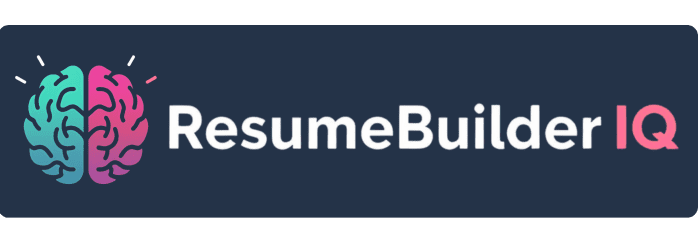25 Letter of Recommendation Examples That Actually Get Results (Plus Expert Analysis)

According to William Fitzsimmons, dean of admissions and financial aid at Harvard, recommendation letters are “extremely important” in college applications. I remember when my own college counselor told me this same thing – I thought she was just trying to stress me out before senior year. Turns out, she was absolutely right.
Think of these letters as your personal cheerleaders – but the kind that actually know what they’re talking about. Whether you’re applying to graduate school, seeking a new job, or pursuing professional opportunities, a strong letter of recommendation can be the difference between getting noticed and getting ignored. After reviewing hundreds of successful applications and seeing what actually works (versus what people think works), I’ve put together this guide with 25 real-world examples that’ll show you exactly what makes recommendation letters tick.
Source: PrepScholar Blog
Table of Contents
-
What Actually Makes Recommendation Letters Work (The Real Story)
-
Academic Recommendations (5 Examples)
-
Professional Employment Recommendations (6 Examples)
-
Professional Services Recommendations (4 Examples)
-
Academic Position Recommendations (4 Examples)
-
Specialized Program Recommendations (3 Examples)
-
Character and Personal Recommendations (3 Examples)
-
Breaking Down Why These Letters Actually Work
-
How Resume Builder IQ Complements Strong Recommendation Letters
-
Final Thoughts
TL;DR
-
Strong recommendation letters need real stories and specific examples, not generic “she’s great” fluff
-
The person writing your letter needs to actually know your work – if they take more than 30 seconds to remember who you are, find someone else
-
Different opportunities need different approaches – your chemistry professor’s letter won’t work for that marketing job
-
Good letters sound like real people talking about someone they genuinely believe in
-
Your letters should match what’s on your resume – consistency is everything
-
Don’t be afraid to ask – most people actually want to help when they’ve seen you do good work
-
Resume Builder IQ’s ATS-optimized resumes work perfectly with strong recommendation letters to create application packages that actually get results
What Actually Makes Recommendation Letters Work (The Real Story)
Look, I know recommendation letters can feel scary and mysterious. But here’s the thing – they’re really just people talking about other people they believe in. The best letters aren’t academic papers full of fancy words. They’re honest, specific stories about why you’re worth taking a chance on.
Before we dive into the examples, let me break down what separates the letters that get you hired from the ones that get filed away and forgotten.
Your Letter Needs to Match the Opportunity
Here’s what most people get wrong: they use the same generic letter for everything. A letter supporting medical school admission should sound completely different from one for a software engineering position. I’ve seen applications where someone clearly used the same recommendation letter for multiple purposes – the disconnect is obvious and honestly kind of insulting to the people reading it.
If your professor is writing about your “excellent communication skills” for an engineering role, but never mentions your technical abilities, something’s off.
The Relationship Actually Matters
This might sound obvious, but the person writing your letter needs to actually know your work. I’m talking about sustained interaction – ideally six months or longer – with specific details about how you work together.
Here’s the deal with timing:
-
Less than 3 months? You’re basically strangers. Focus on that one amazing project you crushed.
-
3-6 months? Now we’re talking. They’ve seen you handle different situations.
-
6+ months? Jackpot. They know your work style, your growth, and your potential.
If your professor takes more than 30 seconds to remember who you are when you ask for a letter, find someone else.
Show, Don’t Tell (With Real Numbers)
“John is a hard worker” means absolutely nothing. “John increased sales by 23% over six months while managing our largest client portfolio” – now that’s a story worth telling.
Instead of: “Sarah is an excellent student who always participates in class.”
Try this: “Sarah consistently ranked in the top 10% of my Advanced Calculus course, asking questions that actually made me think differently about the material. Her final project on mathematical modeling was the best I’ve seen in five years of teaching this course. Plus, she voluntarily tutored three struggling classmates – and all of them passed.”
Make It Look Professional (But Not Stuffy)
Quality letters follow basic business format, use proper grammar, and stay organized. But they don’t need to sound like they were written by a robot. The best letters sound like real people talking about someone they genuinely respect.
Just as professional resume format standards ensure your application materials make the right first impression, recommendation letters need to look polished without losing their human touch.
Academic Recommendations (5 Examples)
Academic letters of recommendation serve a unique purpose – they need to show you can handle serious intellectual work while also proving you’re someone professors want in their program. These five examples show how different academic contexts require different approaches, from graduate school applications to study abroad programs.
1. Graduate School Admission Letter
Picture this: A psychology professor has watched a student grow over three years, from nervous sophomore to confident researcher. That’s the foundation of this PhD program recommendation. The professor doesn’t just say “she’s smart” – they back it up with real evidence.
What makes this letter work:
-
Three-year relationship through multiple classes and research
-
Specific ranking (top 5% of 200+ students)
-
Concrete research contributions (18-month study, 150 participants)
-
Grade examples (A+ in Advanced Statistical Methods)
-
Addresses both academic and clinical psychology requirements
The professor mentions submitting a manuscript together – that’s not just academic achievement, that’s professional collaboration. When a professor is willing to put their name next to yours on research, that says everything.
2. Undergraduate Scholarship Recommendation
High school counselors see everything – your grades, your leadership roles, how you handle stress during finals week. This letter type focuses on the whole picture: academic performance, leadership experience, and character under pressure.
Essential elements that work:
-
GPA context within the entire graduating class
-
Specific leadership positions with real responsibilities
-
Community service hours with actual impact stories
-
Character demonstrations during challenging situations
-
Honest comparative statements about where you rank
3. Study Abroad Program Letter
Language professors bring something special to international program recommendations – they’ve seen you struggle with verb conjugations and emerge speaking fluently. These letters need to show you can handle being dropped into a completely different culture.
What admissions committees want to see:
-
Documented language proficiency through actual classroom performance
-
Cultural adaptability evidence from projects or presentations
-
Independence and maturity examples from real situations
-
Clear connection between the program and your academic goals
-
Evidence you can communicate across cultural boundaries
Study Abroad Letter Excerpt: “During Maria’s three semesters in my Spanish Literature course, she led seminar discussions entirely in Spanish and completed a 20-page research paper analyzing García Márquez’s magical realism. Her presentation on Colombian cultural context showed the kind of cultural sensitivity and research skills that would make her Barcelona semester incredibly valuable.”
4. Research Program Recommendation
Department heads have seen hundreds of students attempt research. They know the difference between someone who follows instructions and someone who asks the questions that lead to breakthrough discoveries. These letters focus on intellectual curiosity and research potential.
Critical components:
-
Laboratory skill demonstrations with specific techniques
-
Research methodology understanding through project examples
-
Technical competency with equipment and software
-
Collaborative project contributions and teamwork
-
Innovation and creative problem-solving instances
5. Transfer Student Letter
Community college professors understand something that university professors sometimes forget – they know what it’s like to work with students who are juggling school, work, and family responsibilities. Their letters carry special weight because they’ve seen real resilience.
What makes transfer letters compelling:
-
Grade improvement trends that show growth over time
-
Examples of adapting to increasing course rigor
-
Evidence of university-level work readiness
-
Personal challenges overcome during college years
-
Clear connections between major choice and career goals
Students making the jump from community college can strengthen their applications by understanding college resume examples that showcase their academic progression and complement their transfer application materials.
Professional Employment Recommendations (6 Examples)
Professional letter of recommendation examples require a completely different approach than academic ones. These letters need to show business impact, leadership potential, and the kind of results that make companies money. The six examples here cover everything from mid-level promotions to senior executive positions.
6. Senior Management Position Letter
When a CEO writes a recommendation letter for their CTO, you know it’s serious. This isn’t just about technical skills – it’s about strategic thinking, team building, and the ability to translate complex technology into business results.
What makes executive letters powerful:
-
C-suite language that shows strategic perspective
-
Quantified business impact ($50M annual revenue growth)
-
Team scaling success (8 to 45 engineers)
-
Cost optimization achievements (35% operational savings)
-
Board-level communication effectiveness
Picture this: Your CEO is so impressed with your work that they’re willing to put their reputation on the line by writing you a letter. That’s exactly what happened here, and the numbers speak for themselves.
7. Mid-Level Professional Advancement
Direct supervisors write the most credible letters for management promotions because they’ve seen you in action every day. They know how you handle difficult clients, tight deadlines, and team conflicts.
Management readiness indicators:
-
Team collaboration and mentoring examples
-
Project leadership with measurable outcomes
-
Decision-making under pressure with real consequences
-
Professional growth initiative that shows ambition
-
Performance improvement trends over time
Here’s the deal with different career levels:
-
Entry Level: Focus on learning ability, work ethic, and cultural fit (1 page max)
-
Mid-Level: Emphasize management potential, project success, and team impact (1-1.5 pages)
-
Senior Level: Show strategic impact, revenue generation, and organizational leadership (1.5-2 pages)
-
Executive: Demonstrate board relations, business transformation, and ROI (2 pages)
8. Career Change Recommendation
Career transition letters are tricky because you need to connect the dots between your current experience and your target industry. The best ones focus on transferable skills and genuine motivation for change.
What makes transition letters work:
-
Cross-functional project success that shows adaptability
-
Learning agility in completely new situations
-
Skill application across different business contexts
-
Character traits that support major changes
-
Authentic motivation for the new field (not just “I’m bored”)
9. Remote Work Position Letter
Remote work recommendations address something specific – can this person actually get things done without someone looking over their shoulder? Previous supervisors need to show evidence of self-management and virtual collaboration skills.
Remote work competencies that matter:
-
Independent project management with measurable results
-
Virtual collaboration effectiveness in team settings
-
Technology proficiency and troubleshooting abilities
-
Self-directed productivity maintenance over time
-
Remote communication clarity and responsiveness
10. Sales Position Recommendation
Sales recommendations are all about numbers, but the best ones also show relationship-building skills. Sales directors can provide the quantified performance metrics that hiring managers want to see.
Sales performance indicators:
-
Revenue generation and quota attainment percentages
-
Client retention and relationship building examples
-
Negotiation success and deal closing stories
-
Team mentoring and knowledge sharing contributions
-
Competitive market analysis and strategic thinking
11. Technical Specialist Letter
Engineering managers bring technical credibility that HR departments can’t provide. These letters need to show both technical competence and the ability to work with non-technical team members.
Technical excellence markers:
-
Programming language proficiency with specific projects
-
System architecture contributions and design decisions
-
Code quality and peer review participation
-
Technical mentoring and documentation creation
-
Innovation through continuous learning and technology adoption
Technical professionals can strengthen their applications by pairing strong recommendation letters with resumes that highlight their hard skills and demonstrate measurable technical achievements that align with their recommenders’ testimonials.
Professional Services Recommendations (4 Examples)
Professional services industries – law, medicine, consulting, finance – operate on reputation and relationships. These letter of recommendation examples need to demonstrate specialized expertise, ethical conduct, and client service excellence while meeting industry-specific standards.
12. Legal Practice Recommendation
Partnership-track legal recommendations are comprehensive evaluations of both legal expertise and business development potential. Senior partners are essentially vouching for someone’s ability to represent the firm’s reputation.
Partnership evaluation criteria:
-
Legal expertise in specialized practice areas with case examples
-
Client satisfaction scores and retention rates
-
Business development and revenue contribution to the firm
-
Professional development and continuing legal education
-
Firm service and pro bono commitment that shows character
13. Medical Practice Letter
Department chiefs have clinical oversight authority, so their recommendations carry serious weight. These letters focus on patient outcomes and collaborative care – things that directly impact lives.
Medical excellence indicators:
-
Clinical expertise with specific patient outcome improvements
-
Interdisciplinary collaboration effectiveness in hospital settings
-
Research contributions and publication record
-
Continuing medical education participation and specialization
-
Professional society involvement and peer recognition
14. Consulting Services Recommendation
Managing directors understand client engagement requirements better than anyone. Their recommendations emphasize problem-solving capabilities and the ability to manage complex client relationships.
Consulting competency areas:
-
Client engagement and satisfaction with specific project examples
-
Analytical problem-solving approaches with measurable results
-
Industry expertise and market knowledge demonstration
-
Project management and delivery under tight deadlines
-
Business development and proposal writing success
15. Financial Services Letter
Investment firm partners bring fiduciary responsibility perspective to financial recommendations. These letters need to show both analytical skills and ethical conduct in handling client assets.
Financial services requirements:
-
Investment analysis and portfolio management with performance metrics
-
Risk assessment and mitigation strategies with real examples
-
Client communication and relationship management skills
-
Regulatory compliance and ethical conduct record
-
Market research and investment insights that generate returns
Academic Position Recommendations (4 Examples)
Academic position letter of recommendation examples need to balance the “three-legged stool” of academia: research, teaching, and service. These letters address different career stages from entry-level faculty to senior administrative roles.
16. Faculty Position Letter
Department chairs have hired dozens of faculty members, so they know exactly what makes someone succeed in academic careers. These letters need to address research excellence, teaching effectiveness, and service commitment.
Faculty excellence criteria:
-
Research productivity and scholarly impact with citation metrics
-
Teaching effectiveness and student mentoring with evaluation scores
-
Service to institution and professional organizations
-
Collegial collaboration and departmental contribution examples
-
Potential for tenure and long-term academic success
17. Research Position Recommendation
Principal investigators understand research scientist requirements because they’ve managed research teams and grant funding. They can address technical competencies and collaborative research abilities.
Research scientist qualifications:
-
Research methodology and technical expertise with specific techniques
-
Publication record and citation impact in peer-reviewed journals
-
Grant writing and funding acquisition success
-
Collaborative research experience across institutions
-
Innovation and creative problem-solving in research contexts
18. Administrative Position Letter
Provosts possess institutional knowledge that’s crucial for higher education administration recommendations. These letters focus on leadership experience and strategic vision for institutional advancement.
Academic administration requirements:
-
Leadership experience and management skills with budget oversight
-
Strategic planning and institutional vision development
-
Budget management and resource allocation decisions
-
Stakeholder engagement and relationship building across campus
-
Institutional knowledge and cultural understanding
19. Adjunct Faculty Recommendation
Department heads can effectively advocate for part-time instructors seeking full-time positions by emphasizing teaching excellence and institutional commitment beyond just classroom instruction.
Full-time faculty transition elements:
-
Teaching excellence and student success with measurable outcomes
-
Curriculum development and innovation contributions
-
Professional experience integration into academic instruction
-
Institutional service and committee work participation
-
Professional development and continued growth in the field
Academic professionals transitioning to full-time positions often strengthen their applications by using teacher resume examples that effectively showcase their educational background and teaching accomplishments alongside their recommendation letters.
Specialized Program Recommendations (3 Examples)
Specialized program letter of recommendation examples serve unique purposes beyond traditional academic or employment contexts. These letters address very specific selection criteria for military academies, professional certifications, and volunteer leadership programs.
20. Military Academy Nomination
School principals have comprehensive knowledge of student development across multiple contexts, making them ideal recommenders for service academy applications. These letters must demonstrate leadership potential and character under pressure.
Service academy requirements:
-
Leadership potential through specific examples like student government
-
Physical fitness and competitive achievement in sports or activities
-
Academic excellence with intellectual curiosity beyond grades
-
Service commitment and patriotic values demonstrated through actions
-
Resilience and stress management abilities in challenging situations
Military Academy Letter Excerpt: “Throughout four years as Student Body President, Michael organized three successful fundraisers that generated $15,000 for local veterans’ organizations. His 4.2 GPA while maintaining varsity soccer team captain duties and volunteer coaching for youth leagues shows the discipline and time management essential for military service.”
21. Professional Certification Letter
Supervisors can effectively support professional certification applications by documenting relevant work experience and demonstrating the candidate’s commitment to professional standards and continuous improvement.
Certification support elements:
-
Relevant work experience documentation with specific project examples
-
Professional development participation and continuing education
-
Industry knowledge and best practices application in real situations
-
Ethical conduct and professional standards demonstration
-
Continuing education and skill enhancement commitment
22. Volunteer Program Recommendation
Nonprofit directors understand volunteer leadership program requirements and can address service commitment, community impact, and alignment with organizational missions.
Volunteer leadership indicators:
-
Service history and commitment demonstration over time
-
Leadership initiative and skill development through volunteer roles
-
Community impact and engagement with measurable results
-
Mission alignment and values consistency with the organization
-
Program contribution potential based on past volunteer performance
Character and Personal Recommendations (3 Examples)
Character and personal letter of recommendation examples serve specialized purposes in legal, immigration, and housing contexts where personal integrity and reliability are the primary concerns.
23. Immigration/Visa Support Letter
HR directors bring employment oversight authority to visa applications, providing crucial documentation of specialized skills and business necessity for immigration purposes.
Visa application requirements:
-
Specialized skill documentation and necessity for the business
-
Business impact and economic contribution to the company
-
Labor market analysis and scarcity evidence for the skillset
-
Employment relationship and integration success within the team
-
Long-term business planning and investment in the employee
24. Personal Character Reference
Community leaders possess character assessment authority for legal proceedings, providing third-party validation of personal integrity and community standing.
Character reference elements:
-
Relationship documentation and context over time
-
Character observation through specific examples and situations
-
Community involvement and reputation within local organizations
-
Personal integrity and ethical conduct in various circumstances
-
Specific character demonstration incidents that show true character
25. Rental/Housing Application Letter
Previous landlords bring direct tenant experience to housing recommendations, providing practical assessment of reliability and responsibility as a tenant.
Tenant recommendation factors:
-
Payment history and financial reliability over the lease term
-
Property care and maintenance responsibility with specific examples
-
Neighbor relations and community integration within the building
-
Communication effectiveness and responsiveness to issues
-
Overall tenant quality and reliability assessment
|
Reference Type |
Key Credibility Factors |
Essential Evidence |
Typical Length |
|---|---|---|---|
|
Character Reference |
Community standing, relationship length |
Specific integrity examples, community involvement |
1 page |
|
Immigration Support |
Employment authority, business necessity |
Skills documentation, economic impact |
1-2 pages |
|
Housing Reference |
Previous landlord experience |
Payment history, property care examples |
0.5-1 page |
Breaking Down Why These Letters Actually Work
Here’s the real story behind what makes these recommendation letters successful. It’s not about fancy language or impressive letterhead – it’s about authentic relationships, specific evidence, and strategic positioning that addresses what decision-makers actually care about.
After seeing hundreds of applications succeed and fail, I’ve noticed patterns that separate winning letters from those that get ignored. The key isn’t just knowing how to write a letter of recommendation – it’s understanding the psychology behind what makes selection committees take notice.
Why Academic Letters Hit Different
Graduate school admission letters work because they use academic language precision while demonstrating research competency. The psychology professor example succeeds because it establishes a sustained relationship through multiple contexts, provides quantified performance metrics, includes specific research contributions, and addresses program-specific requirements.
But here’s what most people miss: the best academic letters sound like one scholar talking to another about someone they genuinely believe has potential. They’re not trying to oversell – they’re making a professional assessment based on real evidence.
The Secret to Professional Employment Letters
Senior management position letters require executive-level language and strategic impact demonstration. The CEO-to-CTO example works because it uses C-suite terminology, provides quantified business metrics, demonstrates team scaling success, and shows strategic alignment between technology initiatives and business objectives.
Here’s the thing about professional letters: they need to sound like business conversations. When a CEO recommends someone for another executive role, they’re essentially saying “I’d hire this person again in a heartbeat.”
Why Professional Services Letters Carry Weight
Legal practice recommendations operate in relationship-driven environments where credibility is everything. Partnership-track letters succeed through legal expertise demonstration, quantified client satisfaction metrics, business development contributions, and professional development participation.
Medical practice letters require clinical excellence emphasis and patient outcome focus. When a department chief vouches for someone’s medical abilities, they’re putting their professional reputation on the line.
Academic Position Letters Balance Multiple Priorities
Faculty position letters need to balance research excellence with teaching effectiveness. Department chairs must address publication records, teaching evaluations, service commitment, collegial collaboration, and tenure potential – basically proving someone can handle the complexity of academic careers.
The best academic position letters acknowledge that great researchers aren’t automatically great teachers, and vice versa. They show how someone excels in multiple areas or has the potential to grow.
Specialized Programs Require Unique Approaches
Military academy nominations need character assessment and leadership potential emphasis. School principals address leadership demonstration, physical fitness, academic excellence, service commitment, and resilience – all the qualities that make someone succeed in military environments.
Professional certification letters document industry competency and ethical conduct. These letters work because they provide third-party validation of skills and character that certification bodies can’t assess through exams alone.
How Resume Builder IQ Complements Strong Recommendation Letters
Here’s something most people mess up: your resume and recommendation letters should tell the same story. If your letter raves about your project management skills, but your resume doesn’t mention them, something’s off.
Resume Builder IQ’s AI-powered platform creates consistency between your self-presentation and third-party validation. When your resume and letters align, you create an unshakeable professional narrative that hiring managers find compelling and believable.
Creating Stories That Actually Match
Resume Builder IQ’s industry-specific templates ensure your resume uses the same professional language that your recommenders naturally employ. When your self-presentation aligns with third-party validation, you create a compelling narrative that makes sense to hiring managers.
The platform’s AI-driven keyword optimization helps bridge the gap between your current experience and target role requirements – the same bridge that thoughtful recommendation letters build through transferable skills emphasis and potential assessment.
Beating Both Robots and Humans
While Resume Builder IQ’s ATS-friendly designs ensure your resume passes automated screening systems, recommendation letters provide the human element that ultimately drives hiring decisions. Together, they create a strategy that addresses both technological barriers and personal connection needs.
Understanding ATS-friendly resume secrets becomes crucial when your recommendation letters mention specific achievements and skills that should also appear in your resume’s keyword-optimized content.
The same attention to formatting, clarity, and professional presentation that makes Resume Builder IQ resumes effective applies to recommendation letters. Both documents should reflect the highest standards of professional communication.
Ready to create a resume that works perfectly with your recommendation letters? Try Resume Builder IQ’s AI-powered platform today and build application packages that get results.
Final Thoughts
Look, recommendation letters might seem like just another hoop to jump through, but they’re actually one of the few times someone else gets to brag about you. And trust me, other people are way better at bragging about you than you are about yourself.
The 25 examples and analysis I’ve shared here give you the framework to understand what makes letters of recommendation truly effective – from specific evidence and quantifiable achievements to professional tone and strategic alignment with opportunity requirements.
But here’s the real truth: the most impactful letters come from people who actually know your work, can provide specific examples of your contributions, and understand what you’re trying to achieve. Whether you’re pursuing academic advancement, career transitions, or specialized programs, the principles stay the same – relevance, specificity, credibility, and genuine enthusiasm make the difference.
If you’re reading this thinking “But nobody knows my work that well!” – stop right there. You’re probably wrong. That professor whose class you never missed? They noticed. That manager you updated every week? They remember. Sometimes we’re our own worst enemies when it comes to recognizing our impact on others.
The investment you make in building strong professional relationships and consistently doing good work pays off when you need powerful advocacy. Combined with professionally crafted application materials, these recommendation letters become the foundation for achieving your most ambitious goals.
So take the time to nurture those relationships, do work worth remembering, and when the time comes, don’t be afraid to ask. The worst thing that can happen? They say no, and you ask someone else. The best thing? You get that dream job, program, or opportunity. Pretty good odds if you ask me.
Remember, someone believed in you enough to consider writing a letter in the first place. That’s not nothing – that’s everything.









